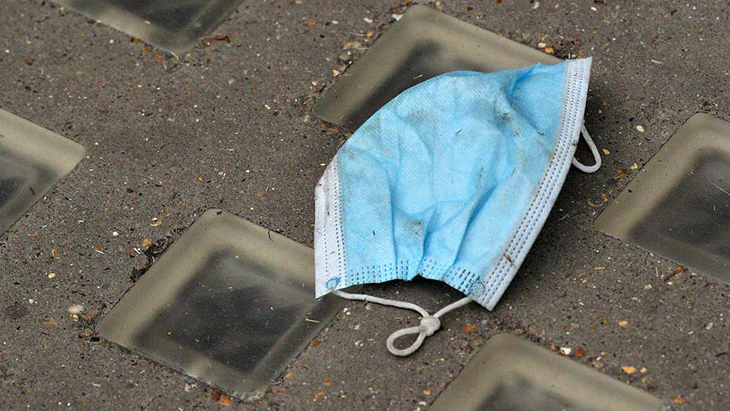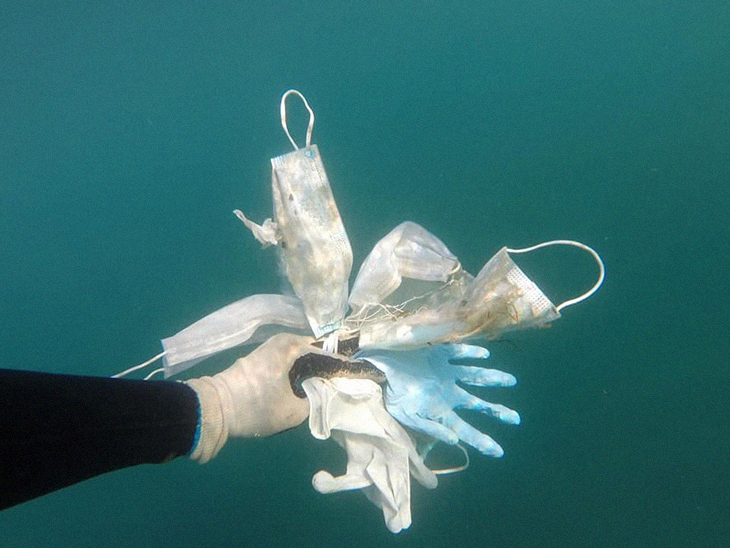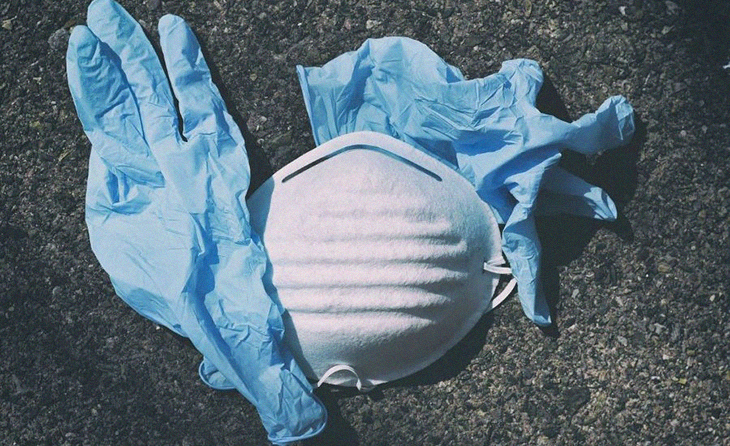
With the pandemic affecting the world and people are trying to cope with the tough blow they’ve been dealt with, the world is now dealing with another problem – personal protective equipment (PPE) are discarded and now, the ocean is clogged with trash no one expected.
People have only started learning how to deal with Covid-19. Economy has been on lockdown since the start of the year. At the beginning, many assumed that nature can finally take a breather. After all, fossil fuels are being used a lot less. Environmentalists have envisioned how animals are finally taking back what was theirs and that the earth was finally healing.
The old adage “behind every dark cloud is a silver lining” was often used. However, the already meager silver may actually be more insufficient. The pandemic may have cleared the air, but it has definitely clogged the oceans. This side was effect was sadly realized by many recently. The millions of PPEs have actually littered the planet in a devastating fashion.
According to the Environment, Science & Technology journal, around 129 billion face masks and 65 billion gloves are being used on a monthly basis. Where does this go? It’s trash nobody expected and it has resulted in “widespread environmental contamination” in the oceans, beaches, and rivers. While the development of a vaccine may not be too far into the future, the following weeks and months will prove to be even more destructive.

The watchdogs of World Wildlife Fund (WWF) warned in a report, saying, “If only one percent of the masks were to be disposed of incorrectly and dispersed in nature, this would result in up to 10 million masks per month polluting the environment.” Hence, the incredible amount of used PPE should be discarded properly. Otherwise, there may be another problem rising aside from the pandemic.
Emily Stevenson, a marine biologist, is known by many as the Beach Guardian. True to her calling, she recently went to the Cornwall beach, along the Southwestern coast of England, to collect the litter around. What she had picked up was shocking. She had with her 171 pieces of discarded PPE after only an hour of combing the shoreline. She had done this weeks before and had only collected six. The rise had her feeling immense concern for the planet’s wellbeing. Not only are the beaches dirtier, but the marine life may be greatly affected as well.
Emily hasn’t done the work alone. She has her father with her, and together, they founded The Beach Guardian Project in 2017. They have since organized 200 community cleanups that involved a whopping 6,000 volunteers. In the past months since Covid-19, she had noticed that majority of the litter they’ve collected comprised of gloves and protective masks. Whereas before, her only worry was plastic.
Emily says, “We’ve already found evidence of PPE actually sinking below the ocean surface. This means that there could be a totally unaccounted for concentration of PPE pollution on the seafloor, which can remain as dormant debris for centuries. Once on the seafloor, it smothers any biological structures such as important Sea Fan beds in the UK, or coral reefs further afield. Also, this debris entails a ‘plasticizing’ effect when on the seafloor – potentially inhibiting gas exchange between the water column and sediment.”

Emily also reported that the entire UK wears one disposable protective mask per day. If this happened for a year, this would result to an extra 57,000 tons of plastic. And as conservationists know, this is difficult to recycle. Compounded with the fact that there could be an additional 66,000 tons of contaminated PPE trash, the future is looking bleak. She continues, “This has been the first time I have been legitimately frightened by PPE pollution. To see it in the water, in the environment that holds my heart and my passion. To see it at home, on my doorstep. It hit me very hard.”
Prior to the outbreak, experts had already been warning the world how plastic was deluging the world’s ocean as well as water supplies. These leaked carcinogenic toxins and chemicals into the environment. Ultimately, marine life and sanctuaries have slowly deteriorated, and this may result in eventual death.
Pollution has been an unending problem. The proportion of garbage disposed has reached monstrous proportions. A hundred million tons of plastic can be found in oceans and between 80 to 90 percent of it comes from land-based sources. In fact, according to the news prepared for the 2016 World Economic Forum in Davos, Switzerland, plastic waste would outweigh all the fish by as soon as 2050. As for Emily, she continues to hope for the best. She knows that people can still redeem themselves, especially when the pandemic has actually reunited the world. She believes that everyone may embrace a conscientious attitude towards global problems.
Emily maintains, “The saving grace of COVID-19 has been our unity; the whole world has faced the virus together. If we continue with the same global collaboration, we can resolve this. PPE is in all of our lives; we use it or see it every day. But it is for this very reason that we can all do something about it. It is those daily, individual, small steps that happen on a global scale that is going to be our greatest ally in this fight against plastic.”
What are your thoughts? Please comment below and share this news!
True Activist / Report a typo


